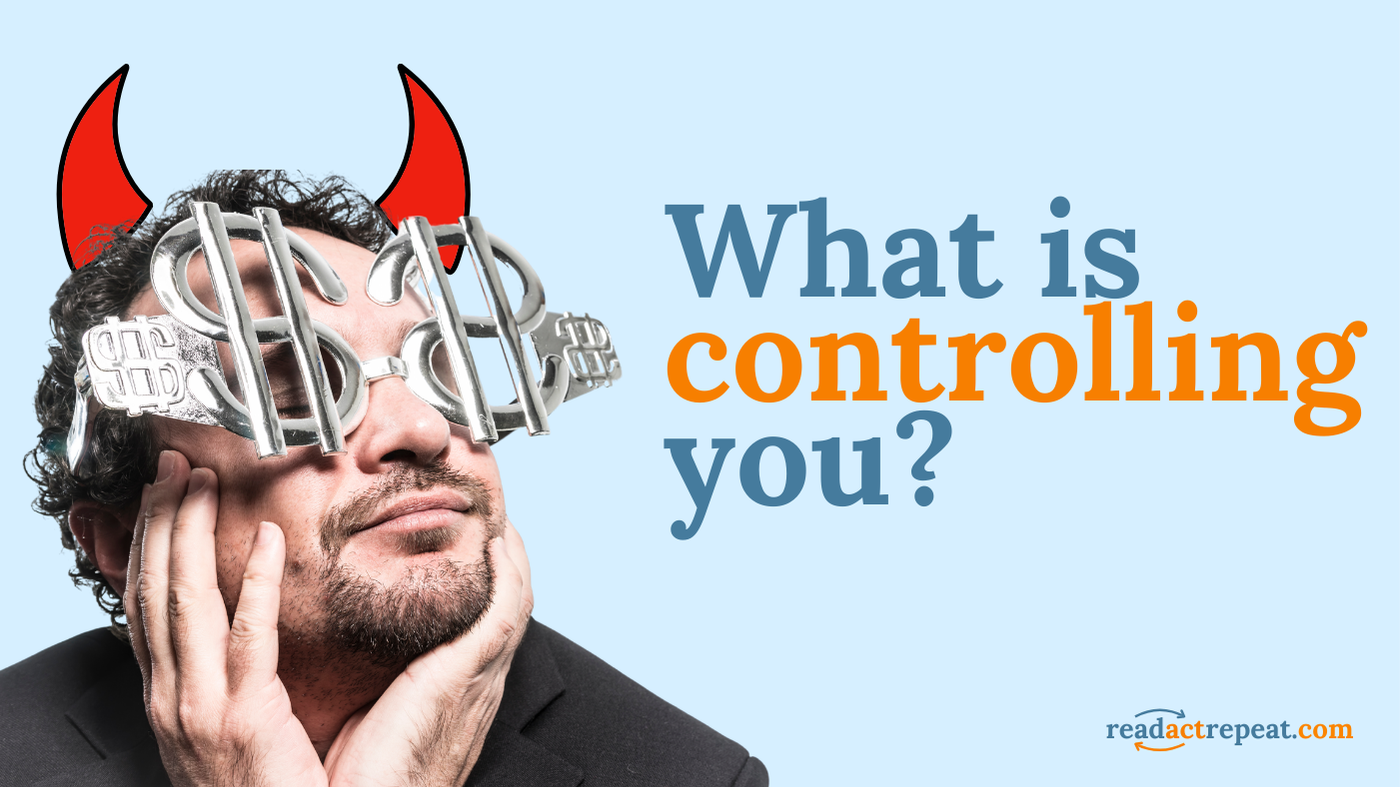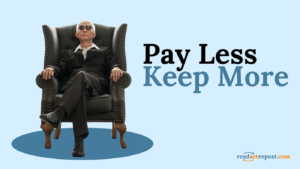In Rich Dad Poor Dad, Robert Kiyosaki introduces two powerful emotions that control most people’s financial decisions: fear and greed. Understanding how these emotions shape your relationship with money is the first step toward breaking free from the cycle of poor financial choices. Let’s explore how fear and greed can hold you back and how you can take control of your financial future by mastering these emotions.
Fear: The Driver of Financial Insecurity
Fear is the most primal emotion when it comes to money. For many, it’s the fear of not having enough that drives them to work harder, save more, or make conservative financial choices. While this may seem like a smart approach, fear can actually trap you in a cycle of working for money without building real wealth.
Do you ever find yourself working tirelessly just to stay afloat, scared of what might happen if you don’t have a steady paycheck? That’s fear at work. Kiyosaki describes this as the “rat race,” where fear of financial insecurity keeps you locked in a job, hoping for promotions or pay raises to solve your problems. However, this mindset keeps you dependent on external factors—like your employer—rather than empowering you to take control of your finances.
Fear also plays a significant role when it comes to investments. You might know that investing in stocks, real estate, or businesses is a pathway to wealth, but fear can hold you back. The fear of losing money often prevents people from taking risks that could lead to greater financial independence. Instead, many stick to “safe” options like saving in low-interest accounts, which Kiyosaki argues can actually make you poorer over time due to inflation.
Greed: The Silent Saboteur of Smart Financial Choices
On the flip side, greed is an equally powerful force in your financial life. While fear pushes you to work harder, greed is what drives you to spend the money you earn on things you desire. Think about it: after receiving a paycheck, how often do you start thinking about all the things you can buy? A new gadget, a vacation, or perhaps a new car? This desire for more is greed at play.
Greed isn’t just about wanting material possessions. It’s also the belief that more money will solve all your problems. “If only I earned a little more, I’d be able to save better,” you might think. But the truth is, without financial education and discipline, more money often leads to more spending. This is why many people, despite earning higher salaries, still struggle financially. The pattern of earning and immediately spending traps you in a cycle where wealth becomes an elusive goal.
The Fear-Greed Cycle: How It Keeps You Stuck
Fear and greed often work together to create a destructive cycle. Fear drives you to work for money, while greed ensures that when you get that money, you spend it on things that offer immediate satisfaction. This leaves little room for saving, investing, or building assets that generate income. Over time, this cycle becomes deeply ingrained, making it harder to break free and achieve financial independence.
Consider this: you work hard because you’re afraid of not having enough money. Then, as soon as you have that paycheck in hand, greed tempts you to spend it on something you want, even if you don’t need it. Before you know it, the money is gone, and you’re back at square one, driven by fear again. This is why Kiyosaki says that people’s lives are controlled by these two emotions unless they actively work to overcome them.
Breaking the Cycle: Controlling Fear and Greed
So how do you break free from the control of fear and greed? The answer lies in financial education and shifting your mindset.
- Acknowledge Your Emotions: The first step to gaining control is to recognize when fear or greed is influencing your decisions. When you feel scared of taking a financial risk, ask yourself whether this fear is rooted in facts or just an emotional reaction. Similarly, when you’re tempted to make a big purchase, consider whether it’s a wise financial choice or simply driven by a desire for immediate gratification.
- Educate Yourself About Money: Financial literacy is your most powerful tool in overcoming these emotions. The more you understand about money, the less control fear and greed will have over your decisions. Start learning about investments, assets, and how wealth is truly built. Kiyosaki emphasizes that the rich don’t let emotions dictate their actions; instead, they focus on acquiring assets that generate income.
- Focus on Long-Term Goals: One way to counteract greed is to shift your focus from short-term desires to long-term financial goals. By setting clear goals, like saving for an investment or building an asset portfolio, you can resist the urge to spend impulsively. Every time you’re tempted to splurge on something unnecessary, remind yourself of your bigger financial vision.
- Take Calculated Risks: Overcoming fear doesn’t mean you should throw caution to the wind. Instead, it means learning to take calculated risks. Before making an investment or a major financial decision, do your homework. Weigh the risks and rewards carefully, but don’t let fear paralyze you from taking action. Many people miss out on opportunities for wealth because they’re too afraid to act.
The Bottom Line: Taking Control of Your Financial Future
Fear and greed are natural emotions, but they don’t have to control your financial life. By acknowledging these emotions, educating yourself about money, and focusing on long-term wealth-building strategies, you can break free from the cycle of working for money and start making your money work for you.
Remember, financial freedom doesn’t come from avoiding risks or indulging in short-term desires. It comes from smart decisions, controlled emotions, and a commitment to growing your wealth through disciplined investments. If you master fear and greed, you’ll find that the path to financial independence is within reach.



